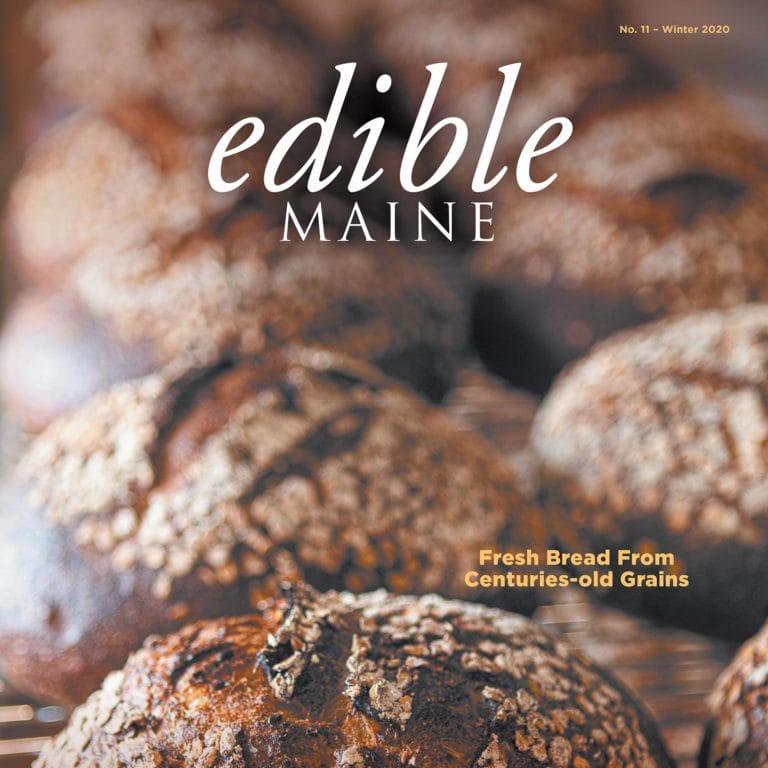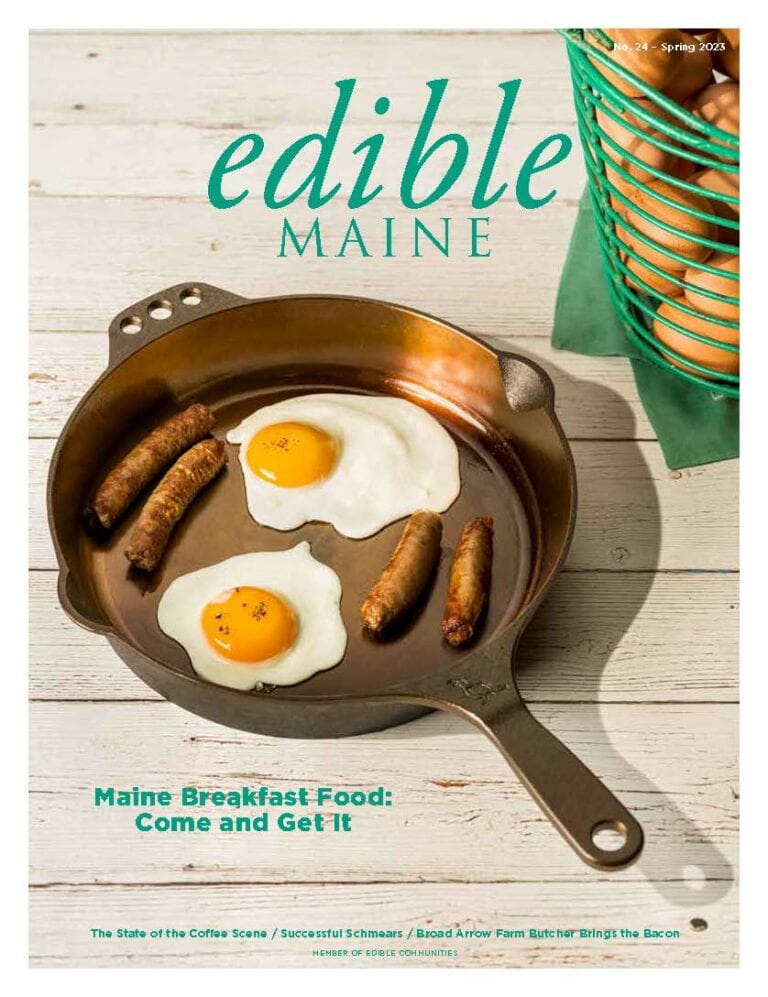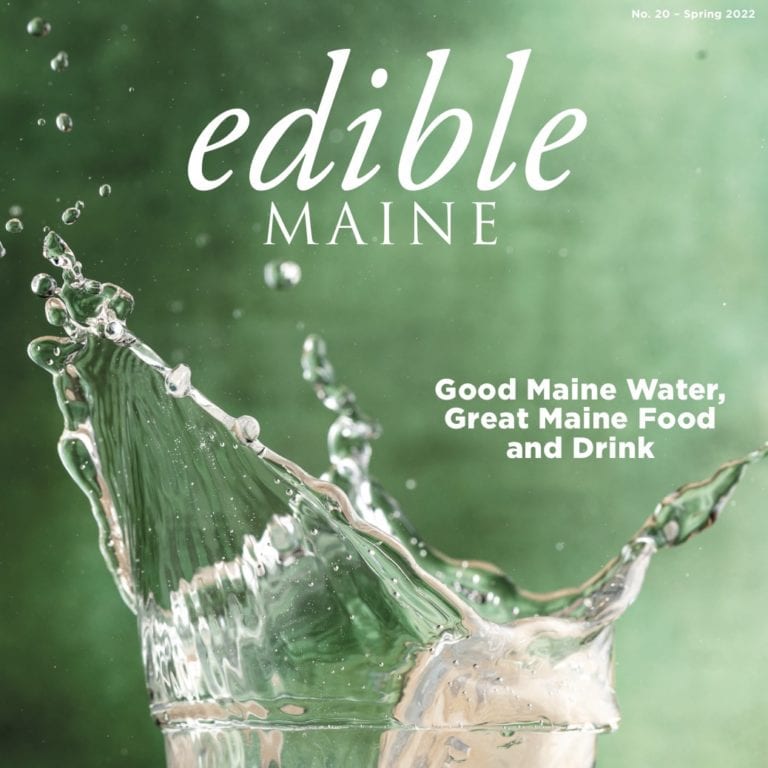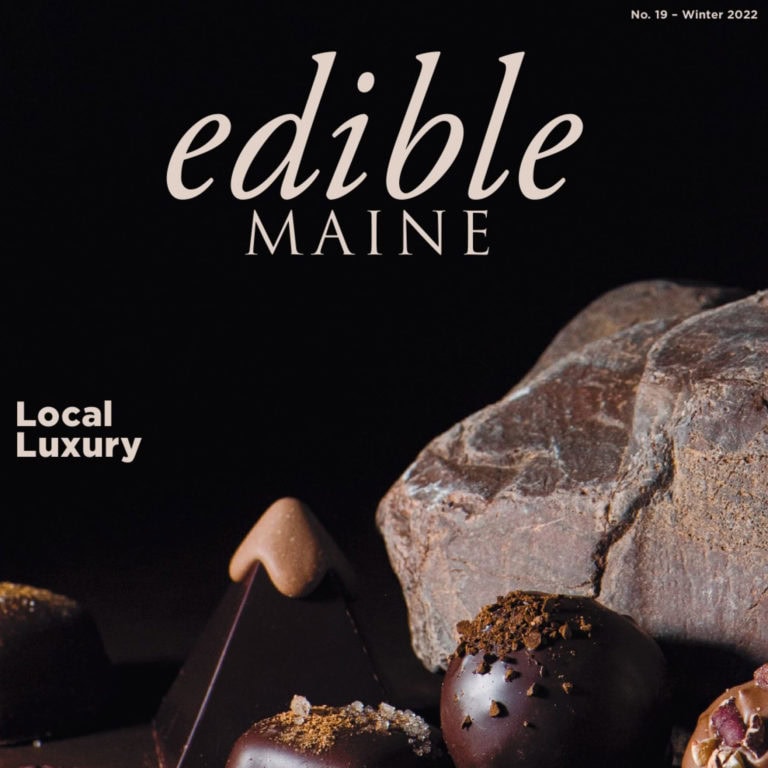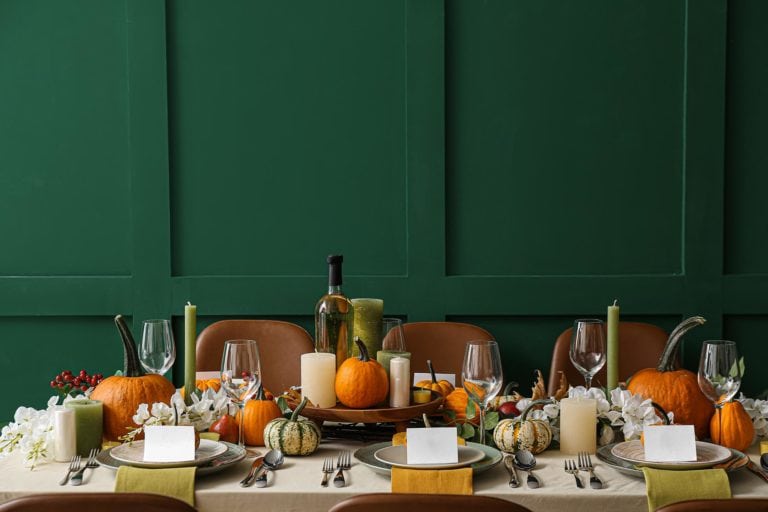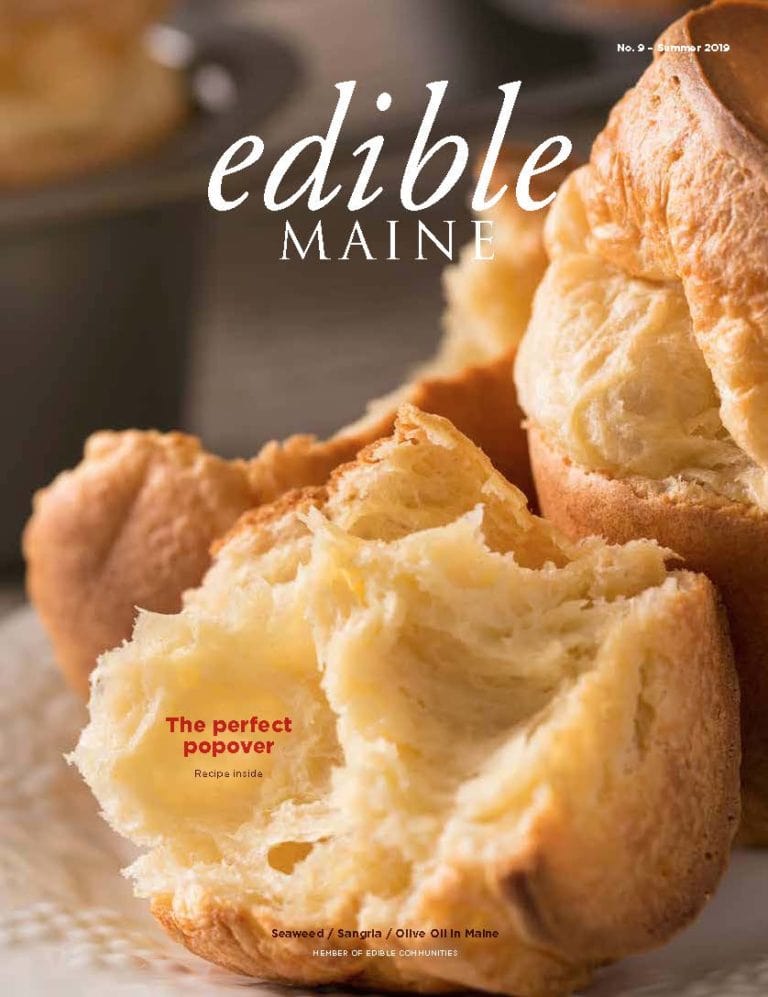Imagine a table—or two—pushed together and laden with food. Around it, family and friends, old and new, of all generations have gathered. The meal is a mix of beloved family recipes and experimental new favorites: Great-grandmother’s chowder sits next to gluten-free internet finds; quinoa tossed with arugula abuts ambrosia salad dotted with miniature marshmallows and maraschino cherries. The conversation is lively and any conflicts are, for the moment, set aside. For this meal, there is a seat for everyone, gathered together and convivially sharing a feast and conversation at a communal table.
This bountiful vision is at the heart of Community Plate, a new statewide nonprofit organization birthed in the wake of the pandemic by my husband, Karl Schatz, and me, Margaret Hathaway. Community Plate is dedicated to fostering new relationships, facilitating connections, and bridging societal divides through the common language of food, culinary-inspired stories, and shared recipes. At a time when so many of us hunger for meaningful social contact, our organization aims to serve community on every plate.
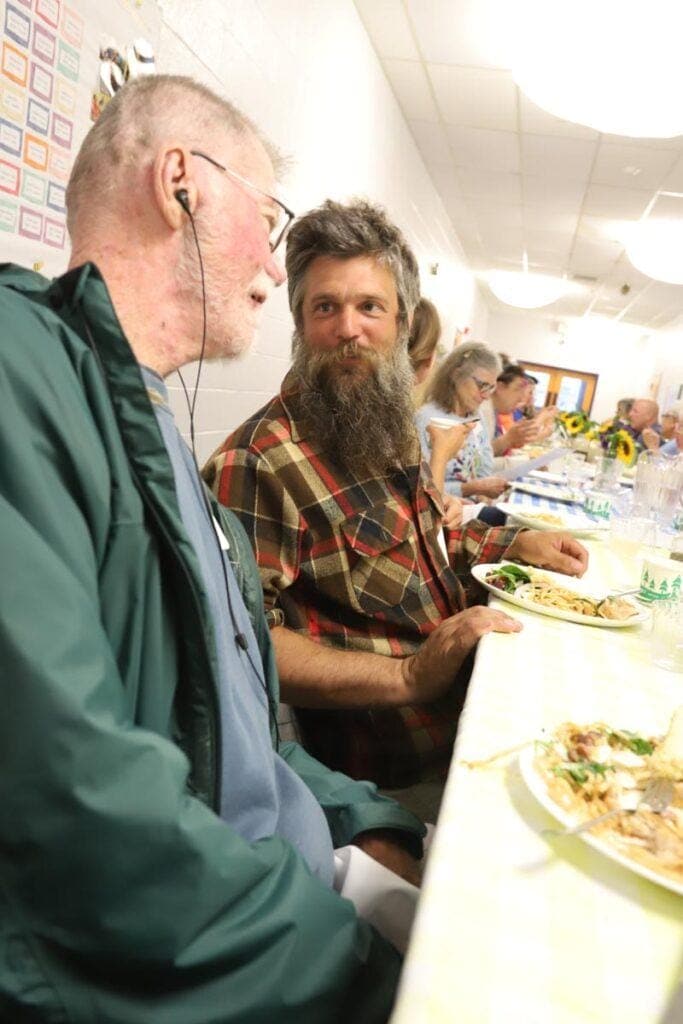
Karl and I have always believed in the twin pillars of food and community, but it wasn’t until we put together the Maine Bicentennial Community Cookbook that we truly understood their power. In the adventure of gathering 200 recipes and stories from Mainers in all 16 counties, we had a glimpse into diverse kitchens and came to believe that sharing the food we cook at home forges connections across time, space, and social groups.
Through Community Plate, we are bringing the work we began in our cookbooks—both the bicentennial edition and the second volume, published in 2022—off the page and into towns across Maine. In this age when divisions in our society are so visible and community spirit can seem diminished, we believe, on a fundamental level, that breaking bread together can heal.
And so, on a misty evening in late June, we drove from our family farm in Gray almost four hours up to Lubec for Community Plate’s inaugural public Story Sharing Potluck Supper.
This is what happens at a Story Sharing Potluck Supper: Before the event, an invitation is extended to the community, and members are invited to bring a dish to share and a story to go with their offering.
Attendees are also given an advance list of story prompts that will shape the conversations of the evening. Throughout the main portion of the meal, participants are invited to turn to their neighbors and exchange answers to these questions. The prompts, which center around food and are thus both personal and nonpartisan, encourage discussions that go deeper than small talk: Share a story about a food that your mom made that you never liked. Share a story about a food that you once hated, but you now love.
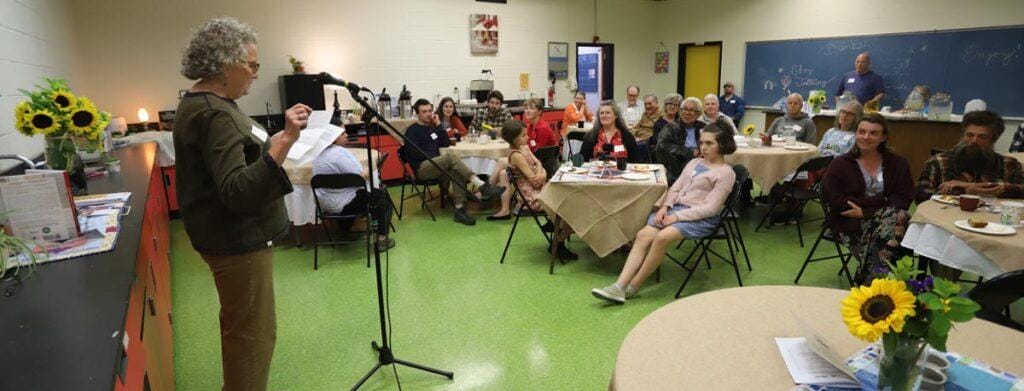
During dessert and coffee at the end of the meal, several practiced storytellers perform works they’ve prepared on the evening’s theme. (For the dinner in Lubec, our theme was “Welcome Home.”) In the weeks following the supper, recipes and stories are collected into a small community cookbook, distributed to those who came to the event, to commemorate the time together.
By giving a defined structure to the meal, the goal is for participants to relax and open up to their neighbors, sharing moments from their personal history and finding commonality in the experience. The cookbook we create from the event is a memento that encourages attendees to remember the evening and perhaps try their hand at making a dish they enjoyed.
For the inaugural supper, Community Plate teamed up with the Lubec Community Outreach Center (LCOC) and the Lubec Memorial Library. Weeks earlier, invitations had been mailed to every resident of the town. Dozens had RSVP’d—enough that Jennifer Bristol, executive director of the LCOC, had to set a seating limit.
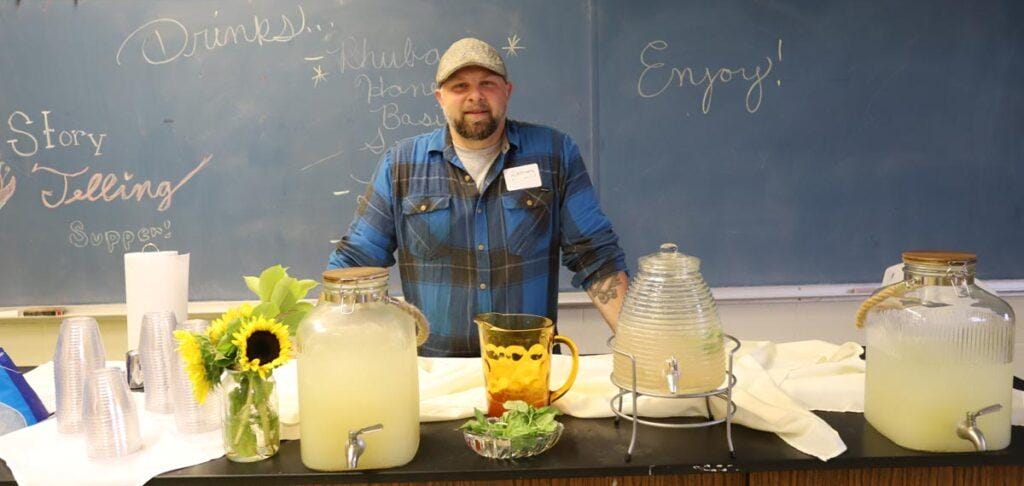
As we entered the LCOC, we found Jennifer smoothing the gingham cloth that draped a long line of tables in the main hall and placing arrangements of bright sunflowers at intervals along its length. Mismatched china and flatware from the Center’s thrift store had been borrowed for the night, and a corps of volunteers bustled through the corridors, pulling folding chairs up to each place setting, and creating stations for name tags, signs for potluck offerings, and nonalcoholic drinks, including the event’s signature seasonal mocktail, a rhubarb and basil spritzer.
Despite the rain, by 6 o’clock, the center was full and the potluck table was overflowing. Clams (dug that morning!) were steaming in a salty broth, accompanied by a pitcher of cream and a slab of butter to dress them. A large silver dish of kaposzta galuska, a Hungarian dish of spaetzle with sauerkraut and bacon, had a photo of the contributor’s grandmother propped next to it. The sign for Ramon Maciel’s curried broccoli-chicken delight warned of a surprisingly spicy kick. Gorgeous cheeses from nearby Tide Mill Creamery were brought by Inez Rose Bell Furth, a member of the ninth generation in her family to farm that land.
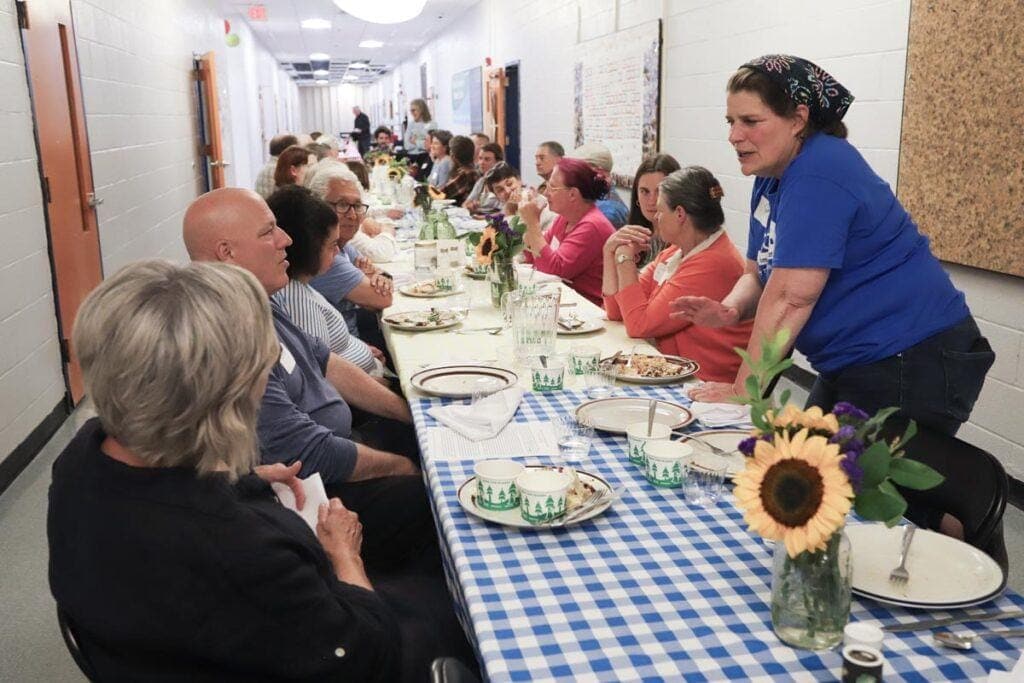
Karl acted as MC of the event, encouraging everyone to sit with strangers. Then he introduced the first prompt: Share a story about a food that reminds you of a specific place every time you eat it.
To my right, an 11-year-old girl told me about the sliced apples at snack time in her kindergarten. Across the table, a retiree shared that the smell of boiled vegetables took him to his grandmother’s kitchen. On my left, a man about my age told of a roast duck he’d eaten a few evenings ago that immediately transported him to a Navy port call, 20 years earlier, in Hong Kong. By the next prompt, conversation around the long table was so loud that it was hard for Karl to get the room’s attention.
After second helpings from the buffet and a third story prompt, we moved to the dessert room across the hall and reassembled around smaller tables. Cherry pie, rhubarb squares, Depression-era tomato soup cake (recipe below), and creamy flan filled our plates. At the head of the room, on a makeshift stage, a trio of storytellers reminisced about their food histories.
Steve Peer told of life in Lubec in the 1980s and a summer spent tracking down the recipe for baked haddock with Nova Scotia egg sauce. Our teenage daughter, Charlotte, recounted her feeling of mastery when she butchered her first chicken. Nancy Peckenham, cookie in hand, told of her mother’s fondness for molasses cookies and the bakery in Bangor that made them for her until her death at age 102.
It was nearly 10 o’clock when the last guests trickled out.

CLICK HERE FOR THE TOMATO SOUP CAKE RECIPE
In the weeks following the event, as we gathered recipes for the commemorative cookbook, we received emails from several of the attendees. One wrote of the evening, “We need fellowship to be more empathetic, present, and resilient.”
When we open up to each other—as storytellers, careful listeners, cooks—we become a part of something bigger than ourselves. Community exists in that space. As we extend ourselves, sharing and learning about each other, we often find that what we have in common far outweighs our differences. That evening, as our daughter told her story about childhood on a small farm, I looked around the room and saw heads of all ages nodding.
A few days after the supper, we received this note: “This event has been one of those things that we can cherish and hold onto when we feel lashed by dismaying events and news… the joyful memories of shared stories and interconnectedness are a balm to it all.”
More information about Community Plate
can be found at www.communityplate.me.
To bring a Story Sharing Potluck Supper
to your town, email community.








